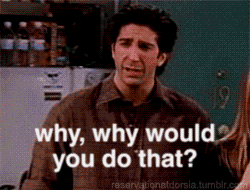“Where is this mindset that everything online should be free coming from?”
– Clinton Cheong
After having gone through the blogs of my classmates, it dawned on me just how lucky we are to be living in a time when we can access resources online. What an exciting time it is!
As an undergraduate who needs to frequently do online research, I often wonder why content producers expect me and other end-users to pay for the required articles.
Are they really that valuable and exclusive?
Looking from a marketing perspective, a higher product pricing often gives consumers the impression that the product itself is of higher value and/or quality.
This is called Premium Pricing Strategy.
This could explain why there are many who do not mind paying more when searching for resources on the internet.
Sadly, there are also incidences where the buyers do not benefit from those resources they purchased.
As what Clinton and Mabel had mentioned… it is entirely up to the publishers to decide whether the resource be free or chargeable.
Upon reflection, I realised that the content producers are not the ones to blame for the paywalls.
 (Credits: Google)
(Credits: Google)
My classmate Emilia had a discussion with me on my previous blog post and it got me to do some further reading. What I’ve found out is that the Open Access system isn’t perfect.
There is a group within the online community aptly called “Predator Publishers”.
They are corruptors who does a multitude of misdeeds such as soft scams and the publishing of counterfeit journals. Moreover, they have a tendency to imitate pre-existing reputable publishers in a bid to gain credibility. This can lead to the tarnishing of the original publisher’s reputation.
For example, the video I posted online of my pet dog could be misused by others in an online scam in which victims are tricked into paying for a dog.
Note that in cyberspace, not all information sources are trustworthy.
In conclusion, I believe that it is up to the publishers to decide if they want to implement a paywall on the resources they upload. And no matter what they choose, there is really nothing much the end-users can do.
Like what Mabel mentioned… “There is no such thing as a free lunch in this world.”
End-users like me should also realise that when it comes to online materials, there is always the risks of legitimacy and quality.
Commented on:
Emilia’s Blog
Clinton’s Blog
References:
http://smallbusiness.chron.com/premium-pricing-strategy-1107.html
http://www.nature.com/news/predatory-publishers-are-corrupting-open-access-1.11385

 (Credits: Google)
(Credits: Google)